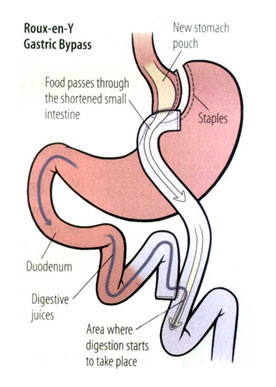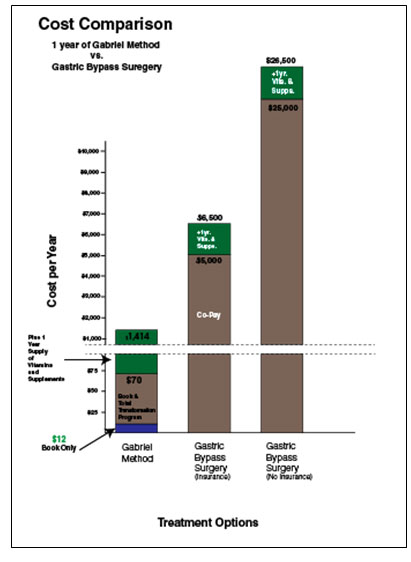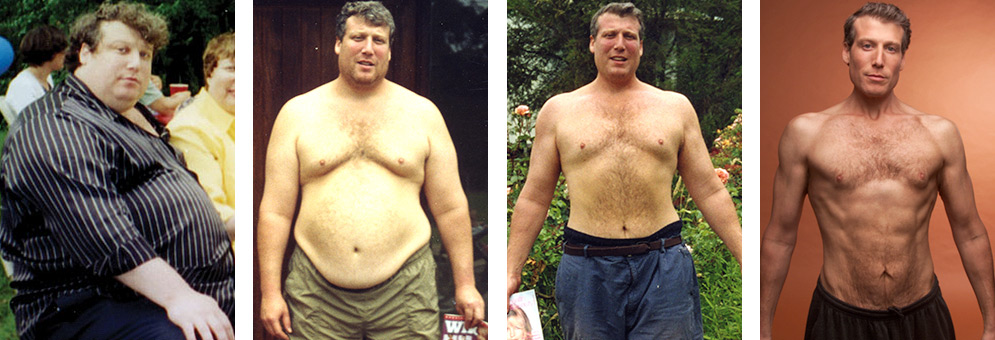Each year, nearly a quarter of a million Americans undergo weight loss surgery to combat obesity and obesity related problems. While the amount of surgeries grew steadily from 2000 – 2008, the number has remained level for the past four years. (1)
One possible reason for this stagnation is the economy. Many potential candidates decided to postpone elective weight-loss surgery when job security, bills, and meeting monthly mortgage payments became more of a concern.
A recent market analysis predicts that the trend will see an upswing once the economy picks up again. But some doctors believe that the leveling has more to do with word of mouth than money – more potential patients are realizing that weight loss surgery isn’t a magic cure.(2)
QUALIFYING FOR SURGERY
Candidates must be clinically obese (Body Mass Index over 35) to be considered for gastric bypass surgery. If they qualify physically, they are normally put on diet and exercise programs for one year. The surgery option is only revisited if they aren't able to lose weight during that period.
However, there is a loophole. If obesity poses an urgent health risk, such as heart attack or diabetes, a patient can be considered for immediate surgery.
WHAT DOES GASTRIC BYPASS SURGERY DO TO THE BODY? The most common weight loss surgery is the Roux-en-Y Gastric Bypass. It works by dividing the stomach to form a small pouch using bands. The small intestine is cut into two parts, and the smaller portion is connected to the pouch. See diagram.
The most common weight loss surgery is the Roux-en-Y Gastric Bypass. It works by dividing the stomach to form a small pouch using bands. The small intestine is cut into two parts, and the smaller portion is connected to the pouch. See diagram.
The surgery reduces the size of the stomach, which limits the amount of food you’re able to eat, and decreases the amount of nutrients and calories absorbed by the small intestine into your body.
THE REAL RISKS OF WEIGHT-LOSS SURGERY
Although about 80% of bypass patients lose weight, there are serious risks associated with surgery.
One of the most common risks is intestinal leakage (4% risk). When the intestine is reconnected to the bowel, the body's healing properties create a watertight seal. Intestinal leakage occurs when the seal doesn't form properly. This can be life-threatening. When antibiotic treatment fails, additional surgery is required.
Kelly's Gastric Bypass Story
Thirty-six year old Kelly Smith* gained nearly one hundred pounds during the few years after her difficult divorce. At 5'7 and 268 pounds, she turned to surgery for help. She was at risk for diabetes, and was having trouble keeping up with her household, job, and parenting responsibilities. She wasn't enjoying life.
At age 36, Kelly had gastric bypass surgery. Unfortunately, she became one of the twenty-five gastric bypass patients who developed intestinal leakage.
“I thought I was going to die. I could have died,” she says, with tears in her eyes. She was hospitalized for over a month, and then spent several more months recovering at her parents' house while her six year old son lived with his dad.
“There was an open wound in my stomach, with tubes draining the leakage into a bag,” Kelly recalls. “I couldn't do anything but sleep, and try to heal.”
But the worst was yet to come. After the surgery to repair the damages, which left her with a long abdominal scar and no belly button, Kelly became addicted to the pain medication. Once she finally broke the drug addiction, she immediately turned to alcohol. Her life plummeted out of control.
Two years later, Kelly is going to twelve-step meetings every night. She is clean and sober, and finally dealing with the underlying emotional reasons for her food-turned-drug addiction.
*name changed to protect identity
– Personal Interview, August 18, 2012
Other risks of gastric bypass include ulcers (4%), hernias (2.2%), stomal stenosis (1.5%), blood clots, and severe infection (under 1%). Seven in every 1,000 Gastric bypass surgeries ends in death.
Even with a successful surgery, most gastric bypass patients suffer from some of the following conditions:
- Nutritional Deficiencies
- Hair Loss
- Dumping Syndrome (nausea, vomiting, diarrhea, dizziness, cramps, palpitations)
- Gall Stones
- Bowel Obstructions
- Constipation
- Flatulence (from poor absorption of nutrients)
POST-OP LIFESTYLE CHANGES
A dramatic change in diet and lifestyle is required following weight-loss surgery. After the operation, patients go on a strict liquid-only diet before moving into mashed foods like bananas and tuna. Foods like fried meats, potato skins, pasta, dried fruits, peanuts and seeds damage the stomach lining and can never be consumed again.
The post-op diet also requires daily vitamins and supplements since the small intestine now limits the absorption of essential nutrients. Patients must also keep their portions small for the rest of their lives.
Proponents of surgery point to a 75% success rate in eliminating diabetes after gastric bypass.(2) But some doctors, like Dr. Hyman, MD, credit the post-op diet. It is likely that the lifestyle changes required post-surgery have more to do with success than the actual procedure.(3)
TREATING THE SOURCE OF WEIGHT-GAIN
It is not routine for doctors to address any emotional sources of weight gain during the patient's standard pre-op assessment period. Instead, the focus is mainly on calories and exercise.
Kelly's story shows that her addictive behavior, a result of needing to feel safe and in control of her life, continued and even worsened after her surgery. She traded one addiction for another.
But what if the emotional causes of a patient's weight gain were addressed as part of the one year pre-op assessment? Would fewer people choose surgery?
 When people experience certain kinds of stress, their bodies react by gaining weight and using fat in order to feel safe. No matter how much they diet or exercise, without addressing the stress, they fail to lose weight.(4)
When people experience certain kinds of stress, their bodies react by gaining weight and using fat in order to feel safe. No matter how much they diet or exercise, without addressing the stress, they fail to lose weight.(4)
BENEFITS OF A HOLISTIC APPROACH
When the mind and body are treated as a wholly connected being, weight loss happens naturally. A holistic approach to weight loss, such as the Gabriel Method, targets the source of your body's need to gain weight. It addresses stress and anxiety through simple visualization techniques. It eliminates nutritional starvation by adding important vitamins and minerals to your regular diet.
No diets. No calorie counting. No invasive surgery.
The result is effortless weight loss with no negative side effects. The Gabriel Method's holistic approach is also thousands of dollars cheaper than even the least expensive gastric bypass surgery scenario.
(The chart to the right
demonstrates the cost-effectiveness of The Gabriel Method versus gastric bypass surgery. It does not account for additional surgeries for complications or plastic surgeries to remove excess skin (due to rapid weight loss) that are often associated with weight-loss surgery.)
Surgical weight loss success is a result of being forced to eat less and absorb fewer calories. Since the underlying cause of their weight gain is never resolved, many patients continue to struggle with their relationship to food for the rest of their lives.
Holistic weight loss methods help your body reset its internal programming so that it wants to be thin. Using mind-body techniques and vital nutrients, The Gabriel Method helps you change your body chemistry by addressing both the physical and mental aspects of your weight gain. The result is a more peaceful, happier life in a thinner, healthier body.
(2) Elliot, Victoria Stagg. “Bariatric surgery maintains, doesn't gain.” American Medical News. April 23, 2012. http://www.ama-assn.org/amednews/2012/04/23/bisa0423.htm
(3) Hyman, Dr. Mark, MD. “Why The New Surgical Cure for Diabetes Will Fail!” March 28, 2012. http://drhyman.com/blog/2012/03/28/why-the-new-surgical-cure-for-diabetes-will-fail/
(4) Georgetown University Medical Center (2007, July 2). Scientists Discover Key To Manipulating Fat; Pathway Also Explains Stress-induced Weight Gain. ScienceDaily. Retrieved August 19, 2012, from http://www.sciencedaily.com-/releases/2007/07/070702084321.htm
Other References:
(1) www.bypasssurgerycomplications.com/bariatric-gastric-bypass-surgery.shtml
(2) www.bypasssurgerycomplications.com/gastric-bypass-surgery-statistics.shtml
(3) www.bypasssurgerycomplications.com/dangers-of-gastric-bypass-surgery.shtml
Figures:
(1) Chart of Bariatric Surgeries Performed 2000-2009. www.ama-assn.org/amednews/2012/04/23/bisa0423.htm
(2) Diagram of Roux-en-Y Gastric Bypass. www.wausaubariatrics.com/how.php
(3) Cost Comparison of Gabriel Method Vs. Gastric Bypass Surgery. Information Sources: www.thegabrielmethod.com/store , www.amazon.com, and previously noted references.
Start Your Transformation Today!



